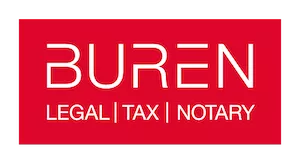- within Tax topic(s)
- with Senior Company Executives, HR and Inhouse Counsel
- in European Union
- in European Union
- in European Union
- in European Union
- in European Union
- in European Union
- in European Union
- with readers working within the Accounting & Consultancy and Business & Consumer Services industries
Last week, the Dutch Secretary of State for Finance issued a decree on the VAT exemption for intermediation/negotiation in share transactions ("the Decree"). This is particularly relevant for M&A practice, as significant costs are often incurred by various parties, many of whom may have limited ability to reclaim input VAT. The Decree largely confirms the approach recently applied by the Dutch tax authorities.
Background
Under the EU VAT Directive and Dutch law, negotiation services in
share transactions are VAT-exempt. According to European Court of
Justice case law, intermediation constitutes performing the acts
necessary to enable parties to conclude a sale or purchase
agreement. Intermediation is thus a service provided for the
benefit of one of the parties, culminating in the conclusion of the
contract.
The Decree
Services related to the acquisition or sale of a business or
shareholding may cover multiple activities. For VAT purposes, it
must be determined whether these activities constitute a single
service or separate services. A success-based or no-cure-no-pay fee
may indicate that the service qualifies as intermediation. The
Decree identifies the phases of an intermediation transaction:
- Orientation and introduction
- Information gathering and preparation
- Negotiation
- Contract conclusion
Where a service provider performs activities across all these phases under a client agreement, the service is treated as a single VAT-exempt intermediation service relating to shares and securities. Early termination of the process does not, by itself, preclude the VAT exemption. If activities do not cover all phases, they must be assessed separately for VAT purposes.
The Decree also clarifies that an intermediary may outsource certain activities without losing the exemption for their intermediation service. For the outsourcing party, exemption applies only if the activities form a distinct, essential part of intermediation. Merely performing technical or material services in support of a share transaction does not qualify as intermediation. Examples of activities that do not qualify independently include business valuation advice, restructuring or preparation for sale, acquisition strategy, and legal services such as drafting a letter of intent. The Decree confirms that automated or manual matching of third-party buy and sell orders on financial markets does qualify as intermediation.
Key Takeaways
The Decree confirms the Dutch tax authorities' applied policy
and is in our view in line with common EU court cases. M&A
practitioners and companies engaged in share transactions should
carefully assess the VAT implications of the services involved.
The content of this article is intended to provide a general guide to the subject matter. Specialist advice should be sought about your specific circumstances.



